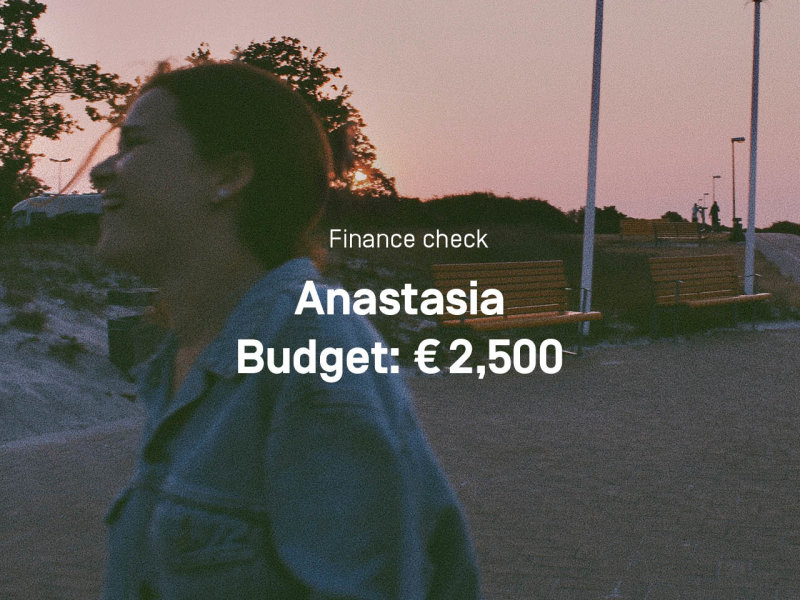How much money she earns, how she allocates her income, whether she invests on the stock exchange and what she would have liked to learn about money at a younger age: Anastasia reveals the answers to all these questions and more for our Money Matters format, Finance Check.
There are many ways to organize your finances. For this instalment of our Finance Check, our colleague Anastasia is telling us how she does it. Here she reveals her monthly budget, how much money she spends each month and on what and how she manages to save 40% of her salary. And you will also find out what kind of role money plays in her future plans. Let’s get started!

How high is your (net) salary a month?
It is €2,500.
Do you live in an apartment or a house and are you renting or buying?
I live on my own in a rented 80 m² apartment in beautiful Hamburg.
What’s the breakdown of your monthly outgoings?
36% of my budget goes towards my fixed costs, such as my rent, internet, green electricity and insurances. 24% of my salary goes on my leisure activities, and I’m currently saving 40%. From the second half of the year, I only want to save 15 to 20% a month and invest the rest.

How do you organize your finances?
I only have one account: a Zero account with Tomorrow. At the moment I’m also saving up for an emergency fund of €15,000. If I were to stop receiving any income for some reason, I would be able to carry on living in exactly the same way that I am now for six months. Last year I was able to save €650 a month and this year it has increased to €1,000. Of course I am keeping a close eye on the increasing inflation rate and will have to see how I can continue saving once I’ve reached my target and how else I can invest my money. If I do decide to invest, then it will definitely be in something sustainable.
I’m also using the budget book in the Tomorrow app to keep an eye on my monthly costs, as well as a budget spreadsheet in Excel that I use to plan my budget. That means I have a pretty clear idea of how much I am spending each month on bits and bobs or good food, or if I can afford to buy myself another fair fashion sweater.
How are you making provisions for your old age or saving up for bigger dreams for the future?
I don’t want to have to rely on the state pension only, which is why I have decided to look into pensions more this year. And by that, I mean looking at how much of a pension gap I would have and then planning accordingly to fill that gap.
I recently downloaded another neo-broker app to make myself more familiar with it all. So far, I’ve only invested money in Tomorrow’s crowdinvesting campaigns and I’m looking forward to the launch of our own sustainable investment product. I’m not part of a company pension scheme. I’ll probably inherit property at some stage but I’m not really thinking about that.
We were never taught the best way to deal with our personal finances or how to do a tax return.
What is particularly important to you when it comes to money?
I save a lot, but I do treat myself to the odd luxury every now and again. It isn’t my goal to become rich, but I don’t want to have to think twice about whether I can afford something or not. And I would like to give my future children the same opportunities that I’ve had – like trying out different hobbies, getting to know different cultures or going to university, if they want to.
Sustainability plays an important role for me and when I’m shopping for all kinds of products (from clothing and cosmetics to food), I prefer to opt for the sustainable alternative. I also talk openly about money but don’t attribute so much value to it, other than the fact that it opens up certain possibilities for me. I realize that that’s only possible when you’re in a privileged situation. But I still believe that a generous and open approach to money is better than making it a taboo subject.
What would you have liked to know or learn about money and finances earlier?
Even though I studied business, I still don’t know enough about the subject. We were never taught the best way to deal with our personal finances or how to do a tax return. I wish schools would teach you things like that at an early age. That kind of knowledge would really equip you for the future.

Better sustainable than sorry: Open your sustainable Tomorrow bank account and change the finance world
